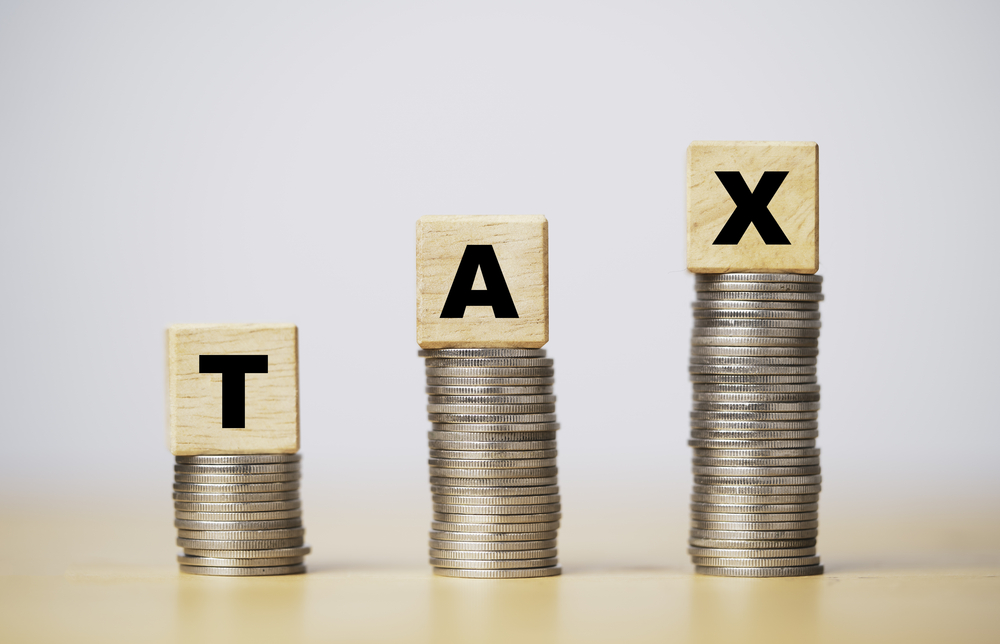How Will This Tax Season Impact Your Existing IRS Payment Plan?
- Jan 15, 2024
 As the annual tax season approaches, individuals already in an IRS payment plan from previous tax years face heightened concerns. They worry about how the forthcoming tax filings might impact their ongoing payment plans. Managing existing IRS debts while facing new potential liabilities can be daunting. In this comprehensive guide, we'll delve into various concerns taxpayers have when filing for a new tax year, addressing how additional tax debts interact with existing payment plans, utilizing refunds to offset past debts, and offering guidance for a smoother resolution.
As the annual tax season approaches, individuals already in an IRS payment plan from previous tax years face heightened concerns. They worry about how the forthcoming tax filings might impact their ongoing payment plans. Managing existing IRS debts while facing new potential liabilities can be daunting. In this comprehensive guide, we'll delve into various concerns taxpayers have when filing for a new tax year, addressing how additional tax debts interact with existing payment plans, utilizing refunds to offset past debts, and offering guidance for a smoother resolution.
The Landscape of Existing IRS Payment Plans
For those currently enrolled in IRS payment plans, understanding how the upcoming tax season might affect their existing arrangements is crucial. It's important to note that filing for the current tax year typically doesn’t automatically modify or disrupt existing payment plans. Your ongoing plan remains unchanged unless you fail to meet payments or violate the terms set by the IRS.
The Impact of Additional Tax Debts
A primary concern for individuals in existing IRS payment plans is how any new tax liabilities might influence their ongoing commitments. Accumulating additional tax debts could complicate the established payment plan, potentially resulting in penalties and accruing interest, exacerbating financial strain caused by existing debts.
Managing New Tax Debt Alongside Existing Obligations
The IRS permits the inclusion of new tax debts into existing payment plans. Taxpayers can request adjustments or modifications to their current installment agreements to encompass any additional tax liabilities incurred during the latest tax year. Promptly addressing these adjustments is advisable to ensure compliance and avoid further penalties. Generally, these are your options for handling a new tax debt that you can’t immediately pay:
- Adjusting Existing Payment Plan – When faced with new tax debt while already on an IRS repayment plan, one option is to seek adjustments to the existing payment plan. Taxpayers can contact the IRS to discuss the possibility of modifying the terms of their current installment agreement to incorporate the additional tax liabilities from the latest tax year.
- Requesting a New Repayment Plan – Alternatively, if the existing IRS payment plan doesn't adequately account for the new tax debt, taxpayers can explore the option of setting up a new repayment plan. This new plan would include both the outstanding balance from the previous agreement and the additional tax liabilities accrued from the recent tax year.
- Consolidating Debts into a Single Plan – Taxpayers may inquire about consolidating multiple tax debts, including the new liabilities, into a single repayment plan. This consolidation allows for easier management of obligations by combining all outstanding balances into one comprehensive payment schedule.
- Temporary Payment Deferrals – In certain circumstances, the IRS might grant temporary payment deferrals or extensions for taxpayers facing financial hardships due to new tax debts. This pause in payments can provide breathing room while individuals strategize a feasible approach to manage both existing and new obligations.
Assessing Eligibility for Other IRS Programs
Exploring other IRS programs or initiatives might be beneficial. For instance, individuals might qualify for an Offer in Compromise (OIC), wherein the IRS settles the tax debt for less than the full amount owed. Additionally, some taxpayers might be eligible for Currently Not Collectible (CNC) status, temporarily suspending collection efforts due to financial hardship.
Utilizing Refunds to Offset Past Debts
Taxpayers eligible for tax refunds for the current filing year while simultaneously carrying past IRS debts should strategically plan. The IRS reserves the right to offset tax refunds against existing debts owed. This method can significantly reduce the overall debt owed to the IRS, benefiting individuals with ongoing payment plans. However, it’s important to know that the refund you’re expecting likely won’t be hitting your bank account; so, if you see you qualify for a tax refund this year, but you’re currently paying off a past tax debt, you should plan accordingly.
Seeking Professional Guidance for Resolution
Handling the complexities of IRS tax debts, especially when managing existing payment plans alongside impending tax liabilities, can be overwhelming. Seeking professional guidance from tax experts or IRS advocates can alleviate stress and uncertainty. These experts offer tailored strategies to effectively manage both existing and new tax debts.
At the IRS Advocates, our team specializes in providing professional guidance and support for individuals dealing with IRS tax debts. We are dedicated to assisting taxpayers in navigating tax obligations, payment plans, and resolving outstanding debts. Contact us today to receive personalized guidance and achieve a viable resolution for your IRS tax debt challenges.
STOP THE IRS!
Settle for less & Protect your assets
Never Call the IRS without Speaking with our Pros First!